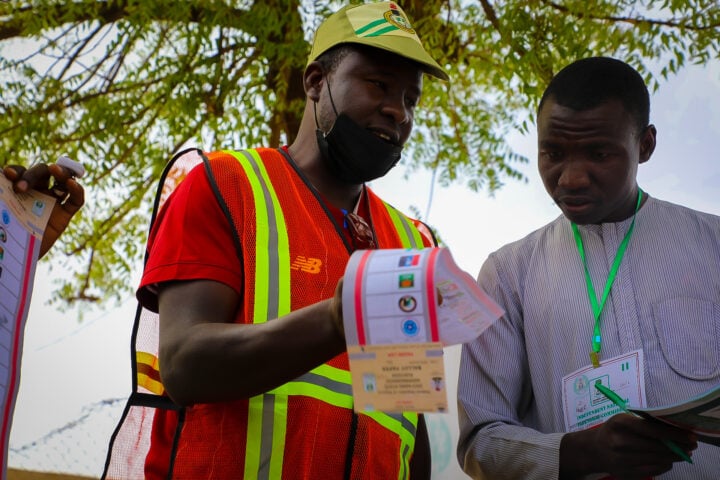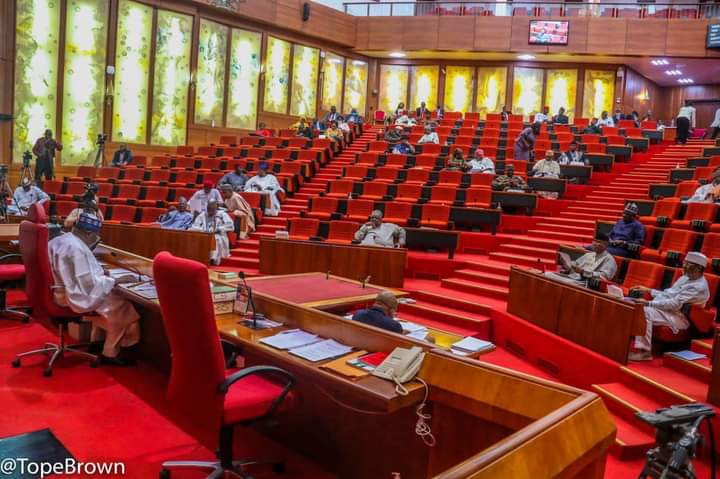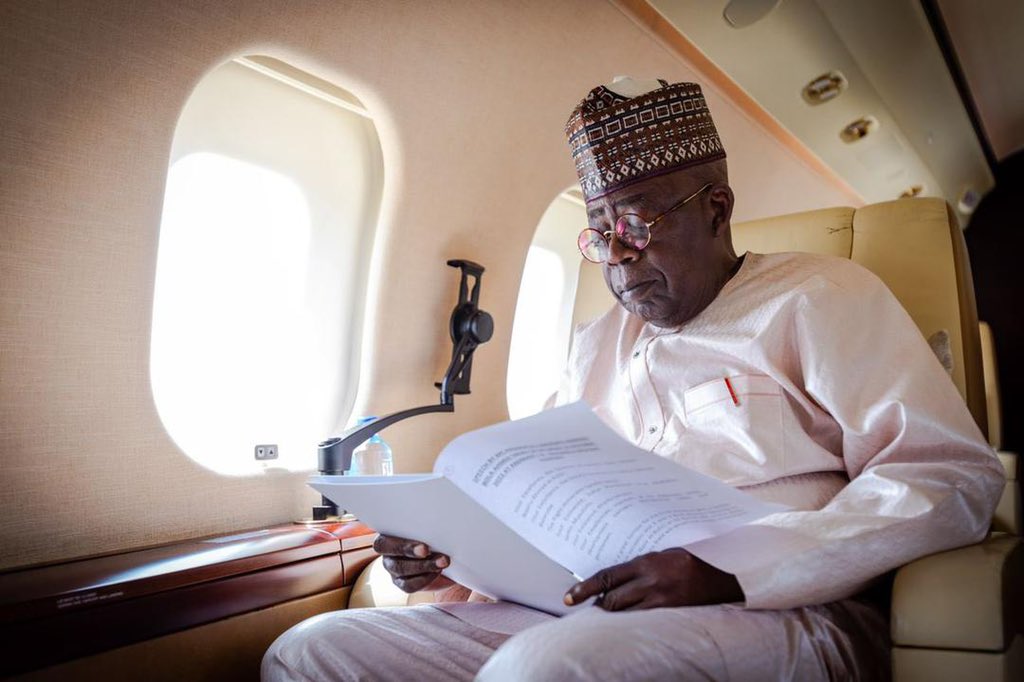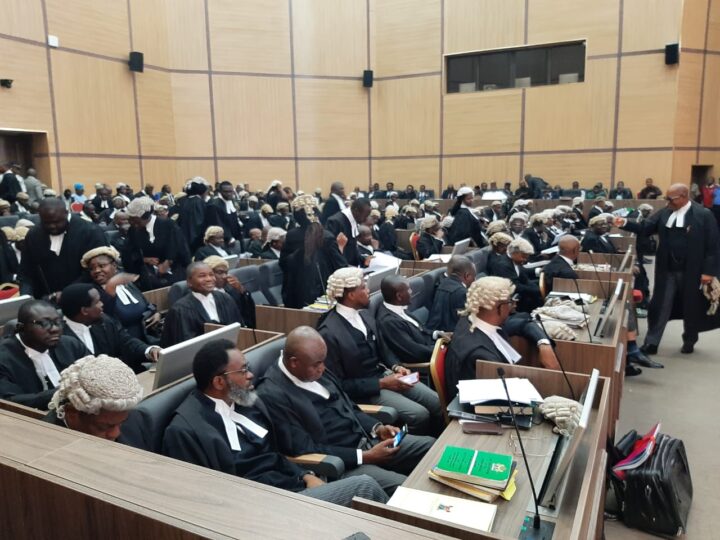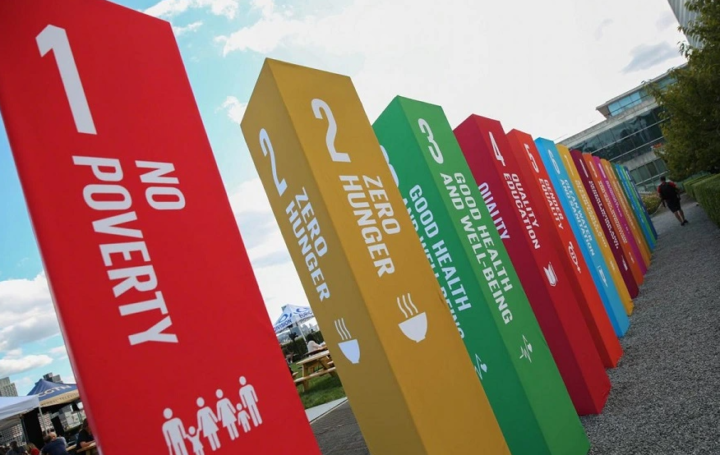I was born in Maroko, a now demolished Lagos seaside slum, which has metamorphosed into posh Lekki. Although Maroko was a medley of various Nigerian ethnicities, Yoruba was its primary language and culture. All Maroko children spoke Yoruba, regardless of ethnic origin. Yoruba worldview and ethos were, therefore, the first cultural values I learned.
Reflecting on this now, I could say I was fortunate to have been introduced to such advanced systems of thoughts, beliefs, and mores as a child. The Yoruba of Maroko, like others elsewhere, were tolerant, inclusive, and open. And this forms the basis for my liberal disposition and views today.
As a child, I could not distinguish us from our Yoruba neighbours. We all spoke Yoruba and pidgin and looked the same. Although we had different kinds of names, my childish mind could not process that this meant different ethnicities as the bonding and unity was strong. There was no us versus them.
Perhaps what made these lines particularly blurry was the Yoruba attitude to religion. In one family, there could be Christians, Muslims, and Ogun worshippers. On returning from church, I still recall Iya Elewa, the Yoruba Muslim beans seller, jocularly asking, “So gbadura fun wa” (hope you prayed for us) and ending the conversation with, “Olorun kan náà la ń sìn” (we worship the same God). There was no sense of superiority or exclusivity.
Advertisement
I was very proud of this Yoruba inclusiveness and worldview. It best approximates western cultural values of tolerance, flexibility, and diversity, which are partly responsible for the accelerated growth and development of countries in the western hemisphere. When I read of the incessant religious and tribal conflicts in the far north, I tell myself that that couldn’t happen in Lagos and other parts of Yoruba land. Because the people and society were more nuanced, more tolerant, and more understanding of other cultures and ways of life, and saw diversity as something not to be feared, but embraced, and the basis for a truly modern and developed society.
The overriding idea that shaped this Yoruba worldview and ethos was Omoluabi. It is a concept I find difficult to translate into English as no word in the language captures its full meaning and essence. Let me try. Omoluabi refers to the idea of being a person of good character, morality, and virtue. It encompasses a wide range of positive qualities that are highly valued in Yoruba culture, including honesty, integrity, respect, kindness, generosity, compassion, empathy, and responsibility.
The concept places great emphasis on personal conduct and the need for individuals to strive to be their best selves. It is believed that living as an Omoluabi is a key component of living a fulfilling and successful life. Therefore, parents, guardians, and other adults often teach children and younger members of the community about the concept of Omoluabi as a way of instilling these positive values in them from a young age.
Advertisement
That is why the general conduct during the recent elections in Lagos was shocking. The concept of being an Omoluabi, a person of good conduct, which is the foundation of the Yoruba culture and society, was thrown overboard for the sake of electoral victory. Thugs ran wild beating and injuring people whom they consider non-Yoruba and may therefore not vote for a particular party and candidate. There was no respect for diversity of political affiliations, opinions, and ethnicities. Ethnic profiling, baiting, and violence were rampant. That was not the Lagos I knew, the one I was born in.
I am not a naïve liberal with no sense of pragmatism who sees the world through rose-coloured glasses. So, I know that elections will always be divisive and politicians will do all they can to win. But shouldn’t there be a benchmark of acceptable political behaviour? Is anything fair to win an election, including the destruction of the moral fabric of society? Are there no tactics we should consider too low and too abhorrent, and therefore all condemn? Would we tolerate a pogrom to win one election?
We can win the election and lose society. Leaders who get elected by sleight and violence lose the moral suasion to preach good conduct to students and others who look up to them. Societal growth and development are not measured only in roads, bridges, and physical infrastructure. We also grow in thoughts, belief systems, and values. On the last score, we appear to be regressing. Many of our young people now engage in yahoo-yahoo or internet scams and are unrelenting in engaging in crime as a shortcut to wealth. Who would tell them that crime doesn’t pay? The tatata governor?
We may say this doesn’t really matter and it is only a political game. I disagree. It does matter. There is a connection between our personal beliefs and conduct with the overriding culture of the society and a connection between the culture and the prevailing civilization and level of development. Political leaders, whether we like it or not, are models of either good or bad behaviour and influence people accordingly.
Advertisement
A society where we beat up people, suppress voters, and encourage bad behaviour to win an election, is intolerant, exclusivist, and close. In time, this bad behaviour will show in all aspects of that society and may even reflect in its economic performance as open and inclusive societies tend to do better and grow faster than closed ones.
Nigeria, and indeed Lagos, is not irredeemable. Omoluabis must step forth and lead the frank conversation about the things that truly matter: A good name, good values, and good conduct. “Orúkọ rere sàn ju wúrà lọ” (A good name is better than gold). Everything should not be about winning. There are indeed some victories that are costlier than defeat and only bring temporal joy.
And yes, there will always be a divergence of political opinions and beliefs but belonging to different political parties should not necessarily mean being enemies. We cannot merge ethnic identity with political affiliation and consequently exclude our neighbours and fellow kinsmen based on these political differences. If the Yoruba tolerated people of different faiths in one family, why would Lagos Yoruba not be accepting of people of different political ideas, opinions, and affiliations?
The Lagos of my childhood teaches us a lesson about what is possible in Nigeria. It was populated by Omoluabis and is a shining example of tolerance, inclusiveness, and diversity. That Lagos holds the key to Nigeria’s emergence as a stable, mature, and developed society. Not the Lagos of the last elections.
Advertisement
Views expressed by contributors are strictly personal and not of TheCable.


